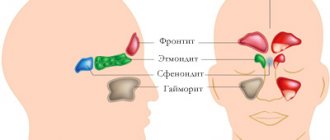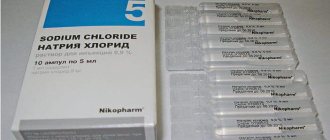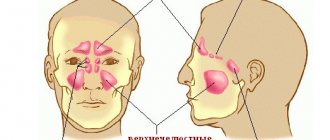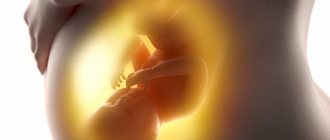If swelling of the nose is observed during short-term pregnancy, then most likely these are signs of sinusitis or vasomotor rhinitis. The disease is not infectious, but as is known, bacteria can multiply in the sinuses.
Following childbirth, nasal swelling disappears and the mucous membrane stabilizes, but during pregnancy it is necessary to maintain health and get out of this condition.
How to relieve swelling of the nasal mucosa during pregnancy
Nasal swelling causes many problems during pregnancy.
This may be sleep disturbance, loss of appetite, bad mood. Because it's hard to enjoy life when your nose can't breathe. Swelling of the nasal mucosa during pregnancy #8212; a fairly common problem. About half of pregnant women experience it.
Why does swelling occur?
Edema can cause various symptoms. It all depends on the degree of damage to the mucous membrane and the extent of the process.
These include:
- nasal discharge may be mucous or purulent;
- increased body temperature;
- pain in the throat area;
- cough is dry or with sputum;
- feeling of brokenness, pain in the bones, malaise.
Allergic rhinitis is manifested by the following symptoms:
- swelling of the nasal mucosa;
- lack of discharge from the nasal passages;
- sneezing or coughing upon contact with an allergen;
- lacrimation;
- itchy skin.
Treatment methods
If, when swelling of the nasal mucosa appears, all the symptoms do not go away on their own within three days, then this is a reason to consult a doctor (therapist or ENT specialist) who will help relieve the discomfort.
Doctor of Medical Sciences V.I. Dikul: “Penny product No. 1 for restoring normal blood supply to joints. Your back and joints will be the same as when you were 18 years old, just apply it once a day. " Read completely """
Treatment of the infectious process includes the following measures:
In some cases, the doctor prescribes physiotherapeutic treatment. This can be ultrasonic inhalations using solutions of medicinal plants, antibacterial or antiviral drugs, or soda solution. We must not forget that during pregnancy, thermal physiotherapeutic treatment is contraindicated; you should not steam your feet or warm yourself in the bathroom.
If nasal swelling persists for a long time (exposure to an infectious or allergic agent is excluded), then we can talk about rhinitis in pregnant women. This condition does not require any specific measures. Although many pregnant women are trying to figure out how to deal with this problem. As a rule, all symptoms disappear a week after birth. And during pregnancy, you can use sea salt solutions to improve your well-being. If the swelling is so severe that you have problems sleeping, then you can use drops with a vasoconstrictor effect at night.
Prevention measures
To avoid the occurrence of all of the above unpleasant symptoms during pregnancy, it is enough to follow a few simple rules.
There are also certain activities that can be performed at home to improve your well-being during pregnancy and reduce swelling. This:
Doctor of Medical Sciences V.I. Dikul: “Penny product No. 1 for restoring normal blood supply to joints. Your back and joints will be the same as when you were 18 years old, just apply it once a day. " Read completely """
- We move with massage movements along the bridge of the nose, gradually moving to the wings of the nose and the area above the upper lip. Performed three to four times a day. Helps improve drainage function, which will reduce swelling.
- Breathing alternately from one nostril to the other. Do it two to three times a day for 4-6 minutes.
- Compresses with mustard: pour mustard powder into warm socks and put on overnight.
- To improve immunity: a composition of grated horseradish and apples. Take two spoons a day, you can add a small amount of granulated sugar.
In any case, all measures for self-treatment of nasal swelling can be carried out only after prior consultation with a doctor. Because it is necessary to exclude other possible causes of swelling of the mucous membrane.
Diana - What to do if your legs swell
First you need to go to the doctor to find out the cause of the swelling in your legs. For example, me.
Thanks for the good and informative article.
Homeopathic remedies? Seriously? Now I would like to treat an infectious disease with pacifiers.
As far as I know, phlebopha is made using the original technology of French drugs, and diosmina.
I don’t know, in analogues sometimes the composition or dose is not quite the same.
When copying materials active link to the site is required.
Consultation with a doctor is required. Self-medication is dangerous.
No comments yet!
Share your opinion
Drug therapy
Drug therapy is aimed at eliminating the cause that caused the swelling
Treatment of swelling and nasal congestion during pregnancy takes place in three main stages:
- The first step is to identify the cause or causes of the disease.
- The second stage ensures relief of unpleasant symptoms.
- On the third stage, relief from the causes of swelling and congestion of the nasal passages is realized.
Due to the specificity of the pregnancy process, pathology therapy requires the use of specialized medications. Considering this aspect of the treatment of pregnant women, it is extremely important for them to know that it is necessary to treat all manifested ailments only with the attending physician.
As a rule, the specialist prescribes:
- Medicines necessary to eliminate the cause of swelling and nasal congestion (antivirals, antibiotics, antihistamines, etc.).
- Medicines used to relieve unpleasant symptoms of pathology (nasal drops, rinsing solutions, painkillers, etc.).
- Immunostimulants and vitamin complexes that help speed up the treatment process.
In addition to the drug course of therapy, the use of physiotherapeutic procedures is possible - from light inhalations to specialized measures in the hospital. Only the attending physician can judge the need to prescribe such, so there should not be any speculation, much less decisions made regarding the organization of treatment on the part of the pregnant woman.
Nasal rinsing
Aqua Maris is an effective and safe nasal rinse
One of the main means aimed at relieving swelling and nasal congestion are rinsing solutions. Such liquids not only help reduce the degree of swelling and eliminate discomfort in the nasal cavities, but also contribute to an enhanced fight against the main cause of the pathology.
For pregnant women, the safest and most effective nasal rinsing solutions are considered to be:
- Aqua Maris is a liquid used as a special composition for rinsing the nasal sinuses and reducing the degree of swelling of the mucous membrane. The course of its use should not exceed 2-3 weeks, except in cases where the drug has been prescribed for a long time by the doctor. The solution is used 4 times a day, 1-3 injections into each nostril. The only contraindication to the use of Aquamaris is the presence of an allergy in a pregnant woman to its components.
- A solution of sea salt, prepared using a glass of water and 1-2 teaspoons of this raw material. The principles of using such a product are completely similar to those described earlier, with the exception that the liquid must not just be injected into the nasal sinuses and passed through them with further flow. There is also only one contraindication to the use of sea salt solution: the pregnant woman is allergic to either salt or water (which is borderline fantastic).
- Furacilin solution is a product prepared from the same glass of water and one tablet of this drug. It is necessary to use Furacilin solution in complete analogy with sea salt solution. Many doctors recommend its use only in cases of significant development of ENT pathologies, so there is no need to rush into purchasing Furacilin. It is advisable to repeat washing with this product 2 times a day for 1-2 weeks. A contraindication to the use of the solution is an allergy to Furacilin or water.
We strongly recommend that all pregnant women, before resorting to rinsing their nose with one or another solution, consult their doctor. Do not forget that the wrong selection of fluid can not only reduce the effect of therapy to zero, but also actually harm the fetus.
Linear dependence of treatment methods on the causes of rhinitis
Therapy for a painful condition directly depends on the provoking factors:
- Presence of allergic diseases. It is possible to alleviate their symptoms with the help of vasoconstrictor drops. The disadvantage of this treatment is the short duration of the effect. But the range of such drugs is impressive. Nazivin and Otrivin are considered effective. Flixonase, based on glucocorticosteroid hormone, acts locally. It has a number of contraindications. Vibrocil acts as an antiallergic and vasoconstrictor at the same time. It can be used at any stage of pregnancy. Intranasal glucocorticoids can relieve swelling. These are the most effective means. Even advanced rhinitis goes away quickly and does not bother a pregnant woman for a long time. One inhalation provides ease of breathing for the whole day. You can get rid of the signs of an allergic form of runny nose with the help of mast cell membrane stabilizers. They are indicated during pregnancy and breastfeeding. This group of drugs is represented by Ifiral, Lecrolin, Cromohexal.
- Due to respiratory diseases. Vasoconstrictor medications and saline rinses of the nasal cavity will help relieve swelling. Drug treatment not only restores breathing, but also prevents infection from developing. The procedure for administering drops is quick and painless. Prescription for pregnant women is not always safe, so treatment is carried out under the strict supervision of a doctor. Rinsing with sea salt successfully relieves swelling. This is a pretty good antiseptic. Pharmacy preparations for washing: Aqualor and Aquamaris.
Additional Methods
Treatment of swelling of the nasal mucosa in a pregnant woman must be adequate and must be prescribed by a doctor. However, it will be very useful to supplement the course of drug therapy (and, with the doctor’s permission, even replace pharmaceutical medications) with home procedures and folk remedies. The best way to relieve nasal swelling is to:
- Acupressure. Place your finger at the center of the bridge of your nose and massage this point in a circular motion for several minutes. After this, go down to the nasal wings and continue massaging circular movements, applying light pressure. Then move on to the nasolabial fold and the dimple located on the chin. One session of such a massage will take about 10 minutes.
- Alternate breathing through different nostrils. This method works well to relieve swelling. This exercise must be performed 2-3 times a day. The duration of one approach should be from 4 to 6 minutes.
- Mustard compresses. To prepare them, you will need to put mustard powder in your socks (preferably warm ones) and go to bed in them.
- Rose hip decoction. Copes well with swelling of the nasal passages. Contains an incredible amount of vitamin C, which is useful for pregnant women. To prepare the decoction, you will need to boil the rose hips in clean water, adding a little sugar. You can replace rose hips with willow bark, oregano or coltsfoot. They are also natural antiseptics. Before using herbal infusions, be sure to check with your doctor to see if they will harm your child.
- Onion-garlic inhalations. To prepare them, you need to finely chop the onion and garlic. Then fill them with clean water and transfer the resulting mixture to the teapot for brewing. Close it with a lid and breathe in the steam coming out of the spout. Bring your nostrils closer to it alternately. Be careful not to burn the mucous membrane from too hot steam.
Proper nutrition
Excessive consumption of processed foods, sausages, pickles, and confectionery products contributes not only to weight gain during pregnancy, but also to the formation of swelling of the nasal mucosa. This occurs due to the use of large amounts of sugar or salt when preparing these products.
Salt and sugar retain fluid in the body, which leads to swelling not only on the legs and arms, but also on the face. Eating healthy food, namely boiled lean meat, fresh fruits and vegetables, helps normalize internal metabolic processes. As a result, the fluid is not retained, but is excreted in the urine and sweat, the swelling goes away, and the woman feels much better.
Edema during pregnancy: why it appears and how to treat it
If edema is suspected during pregnancy, a woman is advised to sit quietly on the sofa with her legs down. If it seems that your legs or arms have become thick, it means that there is stagnation of fluid in the body. The symptom may indicate both the normal course of pregnancy and the development of internal diseases.
How and where does the symptom appear?
Swelling of the legs, arms, face or ankles occurs due to excessive fluid retention in the body tissues. This occurs around the fifth month of pregnancy. The symptom becomes more pronounced by the third trimester.
Often, pregnancy brings about various changes in a woman's body, causing her legs and other parts to swell. Usually the tumor grows gradually: first, swelling occurs on the legs during pregnancy , then on the hands and face. When you press on the swollen area, a small dent remains for 1 minute.
Sometimes the nasal mucosa swells during pregnancy . It becomes difficult for a woman to breathe. In this case, it is contraindicated to use vasoconstrictor drops. Otherwise, the vessels narrow in the umbilical cord, which interferes with the flow of nutrients and oxygen to the fetus.
The only remedy that pregnant women use for nasal swelling is Aquamaris. The product is sold in pharmacies in the form of sprays in bottles of various sizes.
If a woman cannot remove the ring from her finger, it means her hands are swollen during pregnancy . It is normal if the swelling is small and is in one place and does not spread to other parts of the body.
It is better to take a general urine test to rule out the presence of proteins in the urine. Proteins in the urine, edema and high blood pressure are the main signs of gestosis.
Late toxicosis is dangerous for the health of the child and mother. Therefore, at the first signs of illness in pregnant women and deterioration in health, they should immediately consult a doctor.
Causes of edema in pregnant women
The main reason for the formation of edema and tumors in pregnant women is the accumulation of fluid in the external and internal tissues of the body, an increase in blood flow to the pelvis. But there are other explanations for the occurrence of an unpleasant symptom:
- The growing uterus puts pressure on the vena cava, which is located on the right side of the body. It carries blood from the legs and feet back to the heart. The fetus also puts pressure on the pelvic veins, limiting circulation to the back, upper legs and heart. This pushes fluid from the vein into the tissues of the lower extremities, causing swelling.
- Hormonal changes, such as increased levels of progesterone, estrogen, hCG and prolactin, lead to changes in vascular permeability, which causes edema during pregnancy.
- The presence of diseases of the lungs, liver, kidneys, thyroid gland in a pregnant woman, congestive heart failure provokes the occurrence of swelling.
- Medicines for depression or high blood pressure cause swelling with swelling.
Edema is pronounced in the second and third trimesters. Factors influencing the occurrence of symptoms during pregnancy:
- summer heat;
- standing for a long time;
- low potassium diet;
- excessive sodium intake;
- large doses of caffeine.
When a tumor is dangerous for the child and mother
Sometimes swelling during pregnancy requires immediate medical attention. Symptoms indicate a dangerous condition:
- Unusual tumors on the face, around the eyes. The swelling looks larger than normal.
- When tumors are accompanied by excessive weight gain, proteinuria and high blood pressure, this indicates preeclampsia, a complication of preeclampsia.
- If one of a pregnant woman's legs is more swollen than the other, with characteristic redness, this indicates the development of deep vein thrombosis.
- If a pregnant woman notices abnormal swelling in the wrists and hands, it means carpal tunnel syndrome is developing. The disease is associated with swelling that compresses the nerves and spreads to the arms.
If there is a large swelling or rapid increase in body weight, regardless of diet, immediate treatment for edema during pregnancy . In difficult cases, you should consult a gynecologist and follow his advice.
Characteristic symptoms of swelling of the nasal mucosa
If swelling of the mucous membrane is caused by allergies. then the main symptoms will be as follows:
- constant sneezing;
- discharge from the nasal cavity;
- feeling of nasal congestion and inability to breathe freely.
How to relieve swelling of the nasal mucosa in this case? With such manifestations, it is urgent, if possible, to stop direct contact with the substance that causes the allergic reaction, rinse the nasal cavity with water, and vasoconstrictors and antiallergic drugs will also help alleviate the condition.
Read about a vacuum nozzle ejector that helps ease breathing here.
In the case when the nasal mucosa swells due to an ENT disease. the symptoms are:
- purulent or clear discharge;
- difficulty breathing through the nose;
- respiratory infection or colds.
In this case, you need to treat the underlying disease, while simultaneously relieving the symptoms of swelling. The mucous membrane can be washed with a solution of table or sea salt, although in some cases this method does not bring relief.
In any case, you must first consult with your doctor to avoid harm to your health. Perhaps the doctor will prescribe vasoconstrictor drops, but you should not get carried away with them, as almost all of them are addictive and, as a result, dependence, which can result in medicinal rhinitis.
By the way, don’t forget about boosting your immunity.
If an ENT doctor will help you cope with swelling of the mucous membrane caused by a respiratory disease or allergy, then in case of injury. It is necessary to urgently seek help from a traumatologist.
Let's look at the reasons why the nasal mucosa swells.
Nasal swelling is often only a secondary manifestation of a more serious disease. In this case, local treatment is not enough, because the disease that caused this symptom must be eliminated. Below are the main causes of swelling of the nasal mucosa.
- manifestation of an allergic reaction
- colds
- acute respiratory infections
- trauma to the nasal mucosa
- severe hypothermia
- structural features of the nasopharynx
One of the diseases that can cause swelling of the nasal mucosa and other unpleasant symptoms is mononucleosis. Read how infectious mononucleosis manifests itself in children.
Effective treatments
It is absolutely necessary to protect yourself from this dangerous phenomenon, because swelling of the mucous membranes makes breathing difficult, therefore. Less oxygen enters the body, and this threatens the unborn child with hypoxia.
The most effective method of treatment is rinsing the nose with saline solutions , concentrated solutions or infusion of sea salt. Sea salt can be purchased at a pharmacy or prepared at home.
To prepare it, just dissolve 0.5 liters of sea salt or boiled salt. in hot water and then use.
To alleviate a woman’s external condition during pregnancy, it is recommended to use humidifiers and drink more fluids.
Also, you should stay away from cigarette smoke, because this makes nasal swelling even worse and negatively affects the unborn baby.
The healthy health of the mother and the unborn baby is influenced by many external factors. Your attending physician will help you cope with any problems and diseases. The most important thing is not to harm the mother and her unborn child.
We also recommend reading: Preeclampsia during pregnancy: causes, symptoms, consequences
Treatment
The fundamental action for swelling of the nasal mucosa is to identify the reasons that led to the deterioration of the woman’s health. In case of a viral infection, medications and tablets must be taken under the strict recommendation of a doctor. Vasoconstrictor drugs that can relieve difficulty breathing have contraindications during pregnancy. They have an effect throughout the body, affecting the development of the fetus, leading to insufficient oxygen supply and possible inhibition of development. But it is necessary to treat swelling of the nose, otherwise oxygen deficiency will again be created, which threatens the fetus.
Recommendations for getting rid of a runny nose are varied, and all of them are gentle, excluding the use of potent medications. The mandatory use of nasal rinsing solutions forms the basis of measures to get rid of bacterial infections and nasal swelling. Typically, these are saline solutions prepared at home or purchased at a pharmacy in the form of a spray, the basis of which is sea water enriched with mineral salts. It is possible to use nasal drops containing rapeseed oil, peppermint or eucalyptus, but only those approved for children and not for long. Their effects can cause addiction and weaken their effect on the source of infection.
Controlling the fluid you drink will help prevent fluid loss. When removing water from the body with mucus, it is necessary to replenish it by drinking plenty of water. We recommend still mineral water, decoctions and compotes of dried fruits containing vitamin C. Decoctions of chamomile, calendula, and fresh beet juice mixed with water restore the nasal mucosa and relieve swelling of the nose.
Gentle physical exercises will definitely help, dispersing blood throughout the body, they relieve swelling of the nose, and free up breathing. In combination with breathing exercises and acupressure in the nose area, you can also achieve significant success.
Constant monitoring of room temperature and humidity is necessary; in dry climates, dry and irritated nasal tissues create unpleasant pain. This can be corrected by purchasing an air humidifier, as well as repeated use of inhalations based on essential oils.
If complications are caused by exposure to an allergic nature, then simply eliminating the product from the diet or reducing and avoiding exposure to places with irritants will relieve the symptoms of nasal congestion.
But at the same time, you should not constantly be outside or ventilate the premises; it is important to prevent hypothermia of the body, so as not to worsen the current situation. By contacting an allergist, you can find ways of effective treatment much faster.
The main thing to remember is that during pregnancy there are no small things, and a simple runny nose can cause big problems.
Treatment of swelling
It is known that if swelling is associated with hormonal changes in the body, then after childbirth it disappears on its own. But what to do now, because difficulty breathing can not only ruin your mood, but also interfere with the proper development of the fetus?
Important! For the entire period of treatment, you should stop using drugs with a vasoconstrictor effect. Their regular use can cause harm to the fetus, as it leads to poor blood circulation in the placenta.
In addition, the drops are addictive, which makes the situation even worse.
How to relieve nasal swelling during pregnancy?
- Rinse your nasal cavity regularly with any saline solution. To do this, you can buy drugs at the pharmacy such as: Humer, Aquamaris, etc.;
- Or, prepare the solution yourself. To do this, dissolve 1 tablespoon of sea salt in 1 liter of warm boiled water.
By the way, I recently caught a cold and watched videos on YouTube on how to rinse your nose at home.
- It turned out that people do everything they can - you can refill Aqualor spray cans with regular saline solution and rinse your nose;
Save money, and the result will be the same as if you had purchased an expensive drug again
- If difficulty breathing prevents you from sleeping and doing business, you can use a nasal spray (Sanorin, etc.). However, this does not need to be done often. Ointments based on eucalyptus or menthol have a good effect;
Read more in the article Nasal congestion during pregnancy.
- With allergic rhinitis, it is important to understand what has become the allergen and eliminate further contact with it. In addition, your doctor may recommend taking antihistamines in the form of syrups or drops. One of the drugs allowed during this period is Suprastin.
How to relieve swelling of the nasal mucosa during pregnancy?
Typically used for this:
- Antiviral drugs. But they can only be used with the permission of the attending physician;
- Protargol - drops that can dry out the nasal mucosa;
- To get rid of mucus accumulation in the throat, it is important to drink plenty of warm fluids;
- You can instill drops into your nose based on essential oils (Pinosol);
- Cold inhalations, with a decoction of herbs and soda;
- Nose massage.
What provokes the pathological process
Swelling of the mucous membrane can be observed at different stages of pregnancy. The nature of the symptoms has a different origin and is determined by the causes of disruption of the ENT organs.
The source of natural transformations in the body are physiological changes, pathological modifications occur against the background of diseases of internal organs and systems.
Infection with pathogenic microorganisms
The main factor why pregnant women have a swollen nose is acute respiratory diseases. Often, rhinitis develops against the background of a viral infection, especially the activity of pathogenic microorganisms, which becomes more active during the cold season.
The action of infectious agents leads to vulnerability of the immune system and destabilization of the natural balance of microflora.
A prolonged course of a viral infection creates favorable conditions for the development of the bacterial form. Liquid transparent discharge becomes thick and acquires a green or yellow color.
Associated symptoms of the pathology include the following:
- pain in the head and neck area;
- increased body temperature;
- weakness.
Without therapeutic procedures, the threat of localization of the inflammatory process to the paranasal sinuses increases, resulting in the appearance of sinusitis.
Fact! Rhinitis during pregnancy does not pose a threat to the health of the woman and the fetus, provided that inflammatory processes are stopped in a timely manner.
Nasal swelling can occur as a result of hypothermia. For women with weak immunity, the following manipulations can provoke the appearance of swelling:
- refusal to wear a hat in winter;
- drinking cold food and drinks;
- carrying out hydro procedures in cold water.
Pregnant women should take increased care and vigilance to their health, especially during the peak of acute respiratory diseases.
The body's response to allergens
The development of the clinical picture occurs against the background of the concentration of antigens in the circulatory system, the result of which is the expansion and inflammation of the capillaries of the nasal cavity. The vessels lose their permeable capabilities, which is fraught with loss of fluid and the appearance of swelling.
More than 300 allergens have been identified, which a pregnant woman’s body interprets as foreign bodies. The most common irritants are represented by the following substances:
- citrus fruits;
- plant pollen;
- pet hair;
- medicines;
- chemical means.
The actions of allergens provoke swelling of the mucous membrane, lacrimation, sneezing, itching and redness of the skin.
Changes in hormonal levels
One of the most common pathological reasons why the nose becomes enlarged during pregnancy. When a woman is in an interesting position, the amount of progesterone in the blood increases, which prevents uterine contractions.
Performing a protective function, the hormone promotes the concentration of calcium in the body. Excessive mineral content leads to fluid accumulation, resulting in swelling of the nasal mucosa.
Injuries to the nose and adnexal structures
The consequences of mechanical bruises of the respiratory organ are damage to the mucous membrane. The deformity rarely affects bone structures and is mainly localized in the soft tissue area.
Injuries to the nose are often accompanied by an increase in mucous membrane, as a protective reaction of the body to interference in the natural process.
Fact! The rehabilitation period is determined by the individual characteristics of the body and the degree of injury. In patients with strong immunity, soft tissue regeneration occurs many times faster than in the presence of endocrine diseases.
How to stop inflammation of the mucous membrane
Before drawing up a therapeutic regimen, it is important to correctly determine the nature of the pathology. The mechanism of action on pathogens involves the use of traditional medicine methods and the intake of pharmacological products of natural composition.
If swelling of the nasal mucosa is caused by mechanical injuries, then the degree of deformation of the soft and bone tissues is determined by the traumatologist.
In case of an allergic reaction, it is advisable to consult an allergist; an otolaryngologist specializes in relieving inflammation of the inner lining of the nose as a result of the development of viral and bacterial infections.
Aqualor is recognized as an effective drug for rinsing the nasal toilet.
Drug treatment
The goal of therapy is to clear the nasal cavity and paranasal sinuses of secretions, stop the process of reproduction of pathogenic microorganisms, and normalize breathing.
The list of medicinal products that are allowed during pregnancy and breastfeeding includes the following medications:
- “Aquamaris” is a solution based on sea water with an admixture of mineral elements (magnesium, calcium, potassium, iron). Contraindications for use include sensitivity to individual components. The drug is not addictive, the course of treatment can last from several days to a couple of months . It is necessary to irrigate each nasal opening in turn with 1-2 injections 3-4 times a day .
- “Pinosol” is considered as an immunomodulatory product of natural origin, based on extracts of eucalyptus, mint, mountain pine oil, vitamin E. The active components have a softening effect on the mucous membrane. The therapeutic regimen involves using the medicine 3 times a day, 2 drops in each nasal opening. The frequency of the course varies from 5 to 7 days . For inhalation you will need 50 drops (2 ml) of solution three times a day . Gripferon has identical pharmacological properties.
- " Sanorin " is a vasoconstrictor pharmacological product that ensures free nasal breathing. Allowed at all stages of pregnancy . Contraindications for use include hypertension, rapid heartbeat, and glaucoma. Using the drug for more than 4 days can cause atrophy of the mucous membrane and loss of smell. To enhance the effect of the active substances, it is recommended to toilet the nose, and then act on the mucous membrane. Manipulations are performed 3 times a day .
- “ Suprastin ” is an antihistamine medication for the relief of allergic manifestations, preventing the possibility of allergen concentration in the body. The dosage and frequency of administration are determined by the doctor; the best option is 1 tablet 3 times a day after meals . Intramuscular administration of the drug is possible.
With the permission of the doctor, Vibrocil and Flixonase are used to relieve swelling. Before using any pharmacological product, carefully read the manufacturer's instructions to exclude the possibility of side effects.
The effectiveness of alternative medicine
The myth that folk remedies are not capable of causing harm is erroneous. Compared to synthetic products, they have a gentler effect on the body and are gentle on the gastrointestinal tract . However, for complex pathologies they are ineffective.
The main purpose of alternative medicine recipes is a general strengthening, immunomodulatory effect.
Special gymnastics helps normalize the respiratory process and prevent swelling of the mucous membrane
If your nose is swollen during pregnancy, the following recommendations will help reduce the symptoms at home:
- inhalation on potatoes . It is necessary to boil several vegetable tubers in their peels, remove the water, inhale the steam over the pan, covered with a towel;
- onion juice . For 250 ml of water at room temperature you will need 3 teaspoons of onion pulp, a teaspoon of honey. Let the mixture sit for about an hour. Instill the solution 5 drops into each nasal passage 3-4 times a day ;
- aloe _ The juice obtained from the leaves of the plant is combined with honey in equal proportions, and 3-4 drops are applied to the mucous membrane several times a day . The procedure is aimed at relieving swelling and promoting active regeneration of the mucous membrane;
- decoction of chamomile, calendula . Herbal treatment has an anti-inflammatory effect, activates immune defense, and soothes the mucous membrane. To prepare, you will need 10 g of dry product per glass of boiling water , simmer the mixture in steam for a quarter of an hour. Use the decoction to rinse the nose;
- honey _ Effective natural raw materials for relieving swelling, in case of tolerance to the components of the beekeeping product. You can take the substance orally (up to 100 g per day) or dilute it with water in a 1:1 ratio and treat the nasal openings several times a day.
If nasal swelling appears during pregnancy, do not ignore the body's signals. It is possible that the body’s defensive reaction was provoked by pathogenic microorganisms, but it is possible that the reason lies in more serious disorders. To protect your life and the health of your unborn baby, it is advisable to seek qualified medical help.
Doctor
Ways to feel better with swelling
- It is not advisable to use drugs that constrict blood vessels. If you already have to, it is recommended to use Vibrocil, Nazivin and Nazol-Baby.
- It is allowed to use oil and herbal preparations, that is, pinosol.
- Use homeopathic medicines compositum and euphorbium.
- Medicines against viruses, more precisely nazoferon and geneferon.
- To moisturize the mucous membrane, you need to rinse your nose with saline solutions, aquamaris, aqualor and humer.
- Rinse your nose with herbal decoctions, or rather chamomile and calendula.
- Drink warm water.
- Massage the nose and near it.
- Stable humidity and fresh air in the room.
Healing procedures
Pregnant women are strictly prohibited from soaring their legs and performing similar manipulations. But exposure to heat can also bring some benefits.
Patients should constantly protect themselves from hypothermia, wear warm clothes, and insulate their feet. Sinus therapy occurs by heating with warm salt or sand. A blue lamp is ideal for this procedure.
Steam inhalation cannot be overestimated. 4 approaches per day can provide significant relief
However, when using this method, you should pay attention to body temperature. In case of deviations from the norm, inhalations are undesirable
A high pillow will help make your sleep more restful and comfortable. Thanks to this position of the body, the mucous membrane does not swell so much, and the nose can breathe freely.
Physiotherapy can be helpful. It is quite relevant in combination with medications. By combining the two treatment methods, it is possible to reduce downtime and financial costs. In addition, the risk of complications is significantly reduced. The most suitable physiotherapy procedures are: UHF, microwave, inhalations based on mineral water, phonophoresis, the use of therapeutic mud.
Prevention
It is quite difficult to relieve swelling of the nasal mucosa, which often becomes a companion to pregnancy. First of all, this is due to the fact that now many effective drugs are simply contraindicated for you. Therefore, in order to avoid the need for treatment, doctors recommend prevention, which consists of:
- ventilating the room and humidifying the air in it;
- avoiding hypothermia or contact with people who have signs of acute respiratory viral infections or other infections;
- preventing contact with allergens;
- daily walks in the fresh air and playing sports (read a useful article about this: Walking during pregnancy>>>).
If you have to deal with unpleasant symptoms of nasal swelling, consult a doctor who will determine the cause and prescribe safe treatment.
Get the video course “Three Steps to a Healthy Pregnancy and Easy Childbirth” right now
Pathological factors of mucosal edema
The appearance of nasal swelling against the background of chronic diseases threatens the life of the mother and the health of the unborn baby. Detrimental phenomena include the following deviations:
- acute form of rhinitis;
- chronic cardiac dysfunction, renal failure;
- late toxicosis (gestosis).
The danger of the latter factor is placental abruption, oxygen starvation of the fetus, premature birth, and the development of pathologies in the baby.
The main symptoms of heart failure are swelling of the lower extremities; if there is an increase in the nasal mucosa, then we are talking about a serious form of pathology.
Important! One of the main reasons why swelling of the nasal mucosa occurs in a pregnant woman is the abundant influx of circulating blood.
Acute rhinitis without competent and timely treatment develops into chronic sinusitis, which affects the hearing organs.
Why does swelling occur?
Like all other people, in pregnant women swelling of the mucous membrane of the nasal passages most often occurs due to a cold. The causative agents can be a variety of bacteria or viruses. The development of rhinitis and sinusitis during pregnancy is also facilitated by a physiological decrease in immunity.
Edema can cause various symptoms. It all depends on the degree of damage to the mucous membrane and the extent of the process.
These include:
- nasal discharge may be mucous or purulent;
- increased body temperature;
- pain in the throat area;
- cough is dry or with sputum;
- feeling of brokenness, pain in the bones, malaise.
When there is swelling of the mucous membrane, but no nasal discharge (dry mucous membranes), we can talk about vasomotor rhinitis. This disease is based on an allergic reaction. During pregnancy, significant changes in immune status occur. Therefore, even those women who have never suffered from allergies may be susceptible to this disease.
Allergic rhinitis is manifested by the following symptoms:
- swelling of the nasal mucosa;
- lack of discharge from the nasal passages;
- sneezing or coughing upon contact with an allergen;
- lacrimation;
- itchy skin.
Swelling of the mucous membrane can be caused solely by pregnancy. In women in an interesting position, the amount of hormones (estrogens and progesterone) increases, which physiologically leads to swelling of the nasal mucosa, which causes edema to form. But this condition is not accompanied by any additional symptoms other than difficulty breathing.
Symptoms of swelling
If the nose swells during pregnancy, a woman notes other characteristic symptoms:
- difficulty breathing or shortness of breath;
- increased nasal discharge;
- sneezing;
- cough and other symptoms of ARVI;
- loss of appetite;
- lacrimation;
- feeling of dry mucous membranes;
- burning sensation in the nose;
- sleep disturbance;
- headache;
- weakness and increased fatigue;
- snoring or even apnea.
After a visual examination, the doctor will be able to determine the degree of swelling and prescribe treatment that will be safe and effective.
Causes of nasal swelling in pregnant women
The reasons why nasal swelling may occur in pregnant women are physiological or pathological. Physiological reasons are due to natural changes in the body during this period. Pathological causes appear due to a malfunction of vital organs.
Physiological reasons
Among the physiological causes of nasal swelling it is worth highlighting:
- Changes in hormonal levels. Increasing progesterone levels is a prerequisite for pregnancy. This natural process entails the accumulation of sodium in the body, which prevents the removal of excess fluid.
- Increased blood volume levels. A woman’s body is subjected to a double load, because the supply of nutrients is necessary not only for her, but also for the child. The pressure on the walls of blood vessels increases, and as a result, blood enters the surrounding tissues.
- Decreased immunity. During pregnancy, the female body is weakened: all its strength goes into forming and protecting the fetus. If the immune system is weak (in particular, with vitamin deficiency), the risk of catching a virus and getting a cold increases significantly.
- Bacterial infection. It develops as a result of disruption of the natural microflora after bacteria (streptococci, staphylococci, pneumococci) enter the body. Swelling of the nose in this case is accompanied by the release of green mucus.
Treatment in these cases is aimed at eliminating negative symptoms.
Pathological causes
Swelling of the nasal mucosa in pregnant women can occur due to the following pathological reasons:
- diseases of the cardiovascular system;
- disorders of the kidneys and liver;
- the body's reaction to allergens;
- the presence of a benign neoplasm;
- pathologies in the structure of the nasal septum;
- mechanical damage to the pharynx;
- foreign body in the nasal passage;
- symptoms of gestosis (late toxicosis);
- the presence of rhinitis, polyps or adenoids;
- alcohol abuse;
- influence of environmental factors.
Pathological causes of nasal swelling pose a serious threat to the health of the fetus. They require immediate diagnosis. The goal of treatment is to eliminate the root cause of the problem.
Causes of nasal congestion
Swelling of the mucous membrane is caused by a common cold or ARVI. A runny nose and congestion should go away within a week. If this does not happen, and the nose is still swollen, then this can happen for several reasons:
- temporary decrease in the resistance of the pregnant woman’s immune system. As a result, a common cold can develop into sinusitis or rhinitis;
- hormonal changes. A woman’s body actively produces progesterone and estrogen - this is necessary to maintain pregnancy. A large amount of female hormones can also cause swelling. It is absolutely safe and does not have any negative consequences for either mother or baby;
- allergic reaction. The processes that occur in the body of the expectant mother are sometimes unpredictable. Every woman who has given birth notices that her body has undergone certain significant changes. Even if a woman has never had a reaction to any irritants, this may manifest itself during pregnancy. Nasal congestion, urticaria (most often on the stomach) and itching appear.
During the period of bearing a baby, it is better to forget about any experiments with food, exotic products, or strange house plants . If you do not have a pet, then if you are prone to allergies, it is better not to get one.
It is very difficult for a pregnant woman to get enough sleep, especially before giving birth. Swelling of the mucous membrane further complicates this task, since it is very difficult to rest with a stuffy nose. The expectant mother feels constantly tired and becomes irritable.
How to relieve swelling of the nasal mucosa in a child
Every parent has experienced nasal congestion in their child. Sometimes it can go away in a short time, but sometimes it requires serious treatment. Many people mistakenly believe that a baby’s difficulty breathing is due to a large amount of mucus. But the cause is swelling due to inflammation of the blood vessels.
Infants should breathe only through their nose. Its congestion causes great problems and can affect speech development and hearing. There is a possibility of respiratory arrest.
Vasoconstrictor drugs are contraindicated for young children, so use traditional recipes to relieve swelling of the nasal mucosa.
Dilute half a teaspoon of salt in one hundred grams of water. Soak a cotton swab in the solution and insert it into each nostril one by one. Distract your baby so that he doesn't pull out the tampon for a few minutes.
Make inhalations with fir or eucalyptus oil. It has antibacterial properties. Add a few drops to a bowl of hot water, and let the baby breathe, covered with a towel.
Prepare a medicinal mixture from equal parts of plantain, coltsfoot and calendula. Pour a tablespoon of the mixture into a glass of boiling water and boil for five minutes. Let it brew for an hour and instill three drops three times a day.
Traditional methods of dealing with the problem
Chamomile decoction has anti-inflammatory and antiseptic properties
As a supplement to the main drug course of treatment for swelling and nasal congestion, it is quite acceptable for a pregnant woman to resort to the use of methods from traditional medicine.
Naturally, before using any homemade medicines, consultation with a doctor is an urgent matter, so you should not ignore such conversations.
If the doctor has given permission to resort to alternative medicine, the most rational solution would be to use:
- Acupressure of the nasal sinuses, warming up the legs and breathing exercises. Probably, the principles of their implementation do not require explanation. The main thing when using such therapy methods is to work without fanaticism, avoiding overheating of the feet or strong pressure on the facial skin, which can cause skin problems or even cracks in the bones.
- A healing “elixir” that is prepared by mixing grated horseradish with apple and sugar. Taking 2 teaspoons of this product three times a day will not only have a positive effect on the nasal mucosa, but will also significantly increase immunity. Naturally, if a pregnant woman is allergic to horseradish, apple or sugar, it is unacceptable to use such an “elixir” in equal proportions.
- A decoction of chamomile and calendula can be an excellent solution for rinsing the sinuses. This remedy will not only significantly reduce swelling and nasal congestion, but will also increase the local immunity of the mucous membrane. To prepare it, you will need to take one tablespoon of dried chamomile and calendula, then pour 1.5 cups of boiling water over them and leave to brew until completely cool. Before use, the resulting solution must be filtered and used for two washes, one of which is carried out in the morning and the other in the evening. If you have an allergic reaction to the presented plants, you should avoid taking their decoction.
In general, traditional methods of dealing with nasal swelling are good ways to get rid of an unpleasant problem, but they are guaranteed not to be able to become the basis of treatment, so in this regard they are not permissible.
If your nose can't breathe
Difficulty breathing through the nose due to its swelling can be caused by a common cold, a manifestation of rhinitis, an allergic reaction that has not been noted before, or an injury to the nose, both currently and previously. At first glance, not serious difficulties in breathing through the nose can lead to complications in the form of sinusitis, sinusitis, which makes us pay more attention to this problem. Swelling of the nasal mucosa due to excess blood flow to the nasal area is usually accompanied by an inflammatory process, and bleeding may occur. These phenomena occur in more than seventy percent of women expecting the birth of a child, and after giving birth, in one or two weeks, everything goes away as if it never happened.
The cause of a runny nose can be the most commonplace and common viral infection, which becomes more active in autumn and winter, when there is an increased incidence of respiratory viral infections, with the accompanying symptoms fully manifesting: fever, weakness in the body, headache, thickening of the nasal mucosa.
If the manifestations of all of the above are started, then the viral infection will gradually develop into a deeper, bacterial infection, accompanied by thick and green discharge from the nose. Often accompanied by cough, itchy nose, difficulty breathing and as a result, after poor sleep, the expectant mother, in a disgusting mood, will begin to drive the people around her into hysterics. In the absence of proper treatment, the same rhinitis will smoothly and imperceptibly turn into chronic sinusitis with possible complications in the ears.
A woman’s amazing body during pregnancy will certainly manifest itself in allergies to substances that were not previously noted. It’s a shame to have a great desire to eat citrus fruits and at the same time immediately get the “joy” of a runny nose, sore throat and severe itching from just the smell. Basically, this bad situation is created by the body itself due to immunity to certain allergens that can manifest themselves seasonally or locally. Flowering plants, dust, animals, medicines, confectionery products make up a small part of the known allergens around the world.
Congenital problems with the upper respiratory tract or acquired as a result of nasal injuries force us to look differently at the causes of swelling of the nasal mucosa. The presence of tumors in the nasal part or narrow nasal passages received at birth significantly complicate the life of expectant mothers. But mothers who have previously made a career in sports should not relax. The presence of nasal injuries that impair breathing during pregnancy can greatly aggravate the situation.
In any case, there is no need to self-medicate; timely consultation with a doctor can significantly help the current state of affairs.
Symptoms
It is quite difficult to clearly describe the symptoms of congestion, since everything depends on the cause of its occurrence. It could be acute rhinitis, sinusitis, or just a mild but prolonged runny nose. Swelling of the mucous membrane is accompanied by the following symptoms:
- mucous or purulent discharge from the nasal passages;
- low-grade body temperature 37-37.5 C for a cold or chronic sinusitis and 38-39 C for an acute inflammatory process in the paranasal sinuses;
- sore or sore throat;
- productive or dry cough;
- body aches, weakness, fatigue, decreased performance.
If we are not talking about a bacterial infection, but about allergic rhinitis, the symptoms will be as follows:
- severe swelling of the mucous membrane;
- absence of runny nose and any nasal discharge;
- incessant sneezing, coughing, redness of the eyes and tearing upon contact with an irritant;
- general malaise.
During pregnancy, you should forget about any chemical detergents. All of them are not just strong allergens, but real poisons. If you inhale chemicals, you can not only develop an allergy, but also cause a miscarriage. Wash dishes and surfaces with regular laundry soap - it does not have a strong odor and is absolutely safe for both the woman and the fetus.
If a woman’s mucous membranes swell, but there are no symptoms listed above, this is vasomotor rhinitis. Such a temporary symptom can be figuratively called “pregnancy allergy.”
During this period, significant changes occur in the woman’s body and it is difficult for it to adapt quickly. Therefore, reactions such as toxicosis, heartburn and rhinitis occur. As soon as the baby is born, nasal congestion goes away on its own.
Physical exercise
If the pregnancy is proceeding normally, without serious pathologies and the woman is allowed physical activity, optimal physical activity must be used to prevent edema. These may include exercises on a special ball - a fitball, and simple gymnastic exercises, and swimming in the pool.
Such loads optimize metabolic processes and stabilize blood pressure. With the help of physical exercises, blood is distributed evenly throughout the vessels. As a result, not only the mother’s brain, but also her baby’s brain receives the necessary oxygen.
Sources
- https://gorlonos.com/nos/kak-snyat-otek-pri-beremennosti.html
- https://uroki4mam.ru/otek-nosa-pri-beremennosti
- https://TvojLor.com/pregnancy/kak-snyat-otek-nosa-pri-beremennosti.html
- https://pro-oteki.ru/beremennost/oteka-slizistoj-nosa
- https://momchild.ru/chem-lechit-otek-nosa-pri-beremennosti.html
- https://otekinfo.ru/oteki/u-beremennyh/otek-slizistoj-nosa-pri-beremennosti.html
- https://pulmono.ru/nos/drugie3/kak-ubrat-zalozhennost-nosa-pri-beremennosti
- https://sialor.ru/info/profilaktika/otek-nosa-u-beremennykh/
- https://2poloski.com/otyok-nosa-pri-beremennosti/
- https://otekam.net/beremennost/snyat-otek-slizistoj-nosa.html
Share the article on social media. networks:











